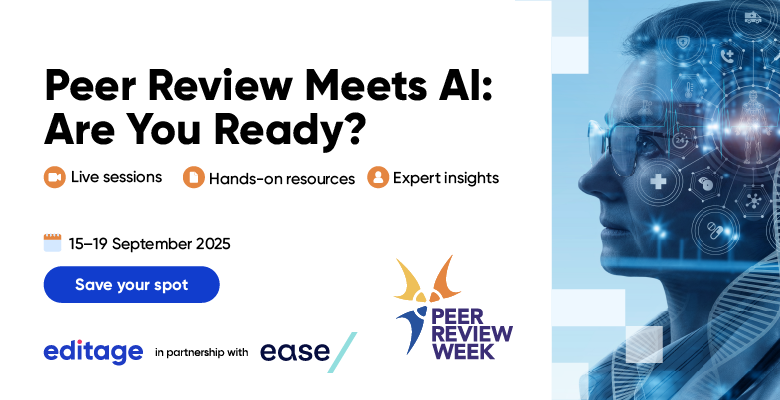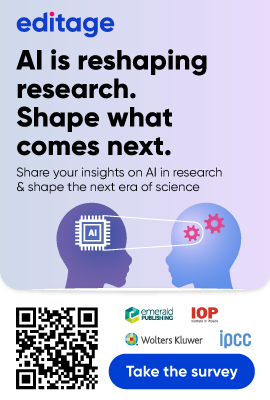What Skills Do Academic Librarians Need to Develop in the Age of AI?

In an age where access to any information is just a simple voice command away, libraries may seem outdated in their traditional form. Undoubtedly, some are skeptical about the role of libraries in a communication landscape that is becoming increasingly digital. However, academic libraries have evolved significantly to keep up with the changing information environment, making them hubs of knowledge and research beyond mere physical collections.
Academic libraries are adapting to the changing landscape of digital content and resources. They are also playing a key role in the shift towards Open Access publishing in the scholarly ecosystem, especially in business models involving transformative agreements. They are becoming a one-stop shop for managing access to different publishing platforms and helping researchers navigate the world of publishing.
Role of AI in Libraries
Although AI and chatbots have been in use for a while now, the emergence of ChatGPT has significantly altered the landscape, given its vast capabilities, compared to services that were previously accessible to the public. It was instrumental in sparking a global trend of integrating AI into almost every industry, and academia is no exception.
AI includes various technologies such as natural language processing and machine learning, which have many potential applications in libraries. For instance, AI algorithms have the capability to improve search and discovery by analyzing large datasets, leading to faster and more precise results. This is beneficial for authors conducting research and can assist librarians in improving their collections. Another potential use is the utilization of AI for cataloging and classification purposes.
The impact of these technologies on library functions and operations could be significant—from simplifying processes and automating tasks, to enhancing user experiences through virtual assistance. By harnessing the power of AI, libraries can boost their resource management capabilities, effectively handling massive datasets and diverse media formats. Ultimately, this will enable libraries to better meet the needs of researchers.
Keeping up with rapidly evolving AI technologies can be challenging. However, it is crucial for library professionals to develop the necessary skills to not only navigate the use of AI in this evolving landscape, but also guide researchers in their use of AI.
Five Skills That Can Benefit Librarians in the AI Era
1. AI Literacy
The widespread use of generative AI research and academia stresses the need for academic professionals, including librarians, to have a certain level of AI literacy. AI literacy involves a comprehensive understanding of AI in all its forms, critically evaluating AI technologies, effectively communicating, and collaborating with AI systems, and using AI as a valuable tool in various library operations and services. AI literacy can also enable librarians to make informed choices about AI adoption and handle the ethical issues that come with AI-related technologies.
Addressing the AI literacy gap calls for a collective effort to develop comprehensive strategies that enhance library professionals’ theoretical understanding and practical application of AI.
2. Awareness of AI-Related Ethics
As AI technology continues to be more widely used within library services, the challenges concerning AI ethics are bound to become more complex. According to the findings from a recent survey, librarians recognize the need for clear guidelines to effectively navigate ethical and privacy issues, particularly as AI technology becomes more prevalent in libraries. This will also go on to ensure that libraries can fully leverage the potential of AI while upholding their commitment to user privacy and ethical principles.
3. Digital Literacy
The growth of information resources is nothing short of impressive and holds immense potential. And this emphasizes the need for library and information professionals to acquire the necessary digital literacy skills to truly derive the benefits of these resources and meet the evolving needs of their users. Equipping librarians with these digital literacy skills will be key in enhancing their services, and empowering them to navigate the information landscape effectively, leading to more efficient creation and utilization of information resources.
4. Data Services and Management Skills
Research services offered by academic libraries now comprise the entire data lifecycle, including data management, digital curation, and creating metadata. Library professionals need a diverse set of skills such as data mining, technical knowledge of repository systems, programming expertise, and understanding of legal and policy requirements to efficiently provide these services. Moreover, with the increasing amount of digital data being produced, it is crucial to effectively manage and organize data to ensure its accessibility. While some libraries have specialized data librarians for this purpose, others may require existing staff to handle data services. And especially in such cases, it is important to provide them with training to enhance their skills.
5. User Engagement
University libraries not only provide access to study materials, but also offer valuable knowledge and expertise to help authors with research and finding the most relevant information. Through the many tools, services, and expertise they offer, academic libraries play a significant role in ensuring that researchers have the resources to support their academic work. And to ensure their active and continued role in contributing to the success of students and researchers, it is important for academic libraries to engage them and raise awareness of the services and resources they offer.
Libraries can collaborate with university faculty in seamlessly incorporating and promoting information literacy and research skills across the curriculum, ensuring ongoing support for students. Academic libraries can also drive engagement through social media and by hosting workshops and training sessions to educate and equip students and researchers with skills to effectively use library resources.
Conclusion
The integration of AI in libraries holds huge potential for revolutionizing resource management and enhancing library services, benefiting both librarians and users. Insights from Sage’s Librarian Futures Part III: The Librarian Skills Landscape report highlights that 37% of them express feelings of unpreparedness in addressing student questions about AI. This underscores the need to direct resources towards reskilling librarians, empowering them to educate students about the complexities, risks, and ethical considerations inherent in this transformative technology.











